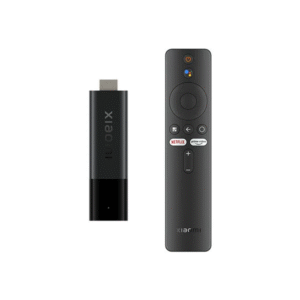Every component plays a crucial role when it comes to keeping your Hyundai Accent running smoothly. Among these, the coil pack stands out as a key player in ensuring your engine fires on all cylinders—literally. Think of the coil pack as the unsung hero of your vehicle’s ignition system, transforming low-voltage power into high-voltage sparks that ignite fuel and air mixtures for optimal performance. In this guide, we’ll explore everything you need to know about maintaining and replacing your Hyundai Accent coil pack. So buckle up; let’s dive into a world where automotive health meets DIY prowess!
What does the Coil Pack do in Your Hyundai Accent?
The coil pack in your Hyundai Accent serves as the heart of your ignition system and is responsible for igniting the air-fuel mixture within each cylinder. This small yet mighty component transforms battery voltage into a powerful spark, ensuring optimal engine performance. Without it, your car would struggle to start and run efficiently. Imagine lighting a candle with a weak match—it just won’t work! The coil pack generates high-voltage electricity that travels through ignition wires to the spark plugs, creating those essential sparks for combustion. Each pulse is perfectly timed, allowing each cylinder to fire at precisely the right moment.
When you press down on the accelerator pedal, you expect immediate responses from your engine. The coil pack plays a key role in this responsiveness by providing consistent energy to create smooth acceleration and reliable power delivery. You may experience hesitation or stuttering during drives if it falters or fails altogether. In modern engines like the Hyundai Accent, multiple coils can be used—one for each cylinder—for improved efficiency and performance. This design reduces weight and complexity while enhancing fuel economy compared to older systems.
Understanding this little component’s importance might inspire you to pay closer attention when maintaining your vehicle’s health!
Engine Misfires in Your Accent? The Coil Pack Could Be the Cause
Engine misfires can turn a smooth ride into a bumpy experience. If your Hyundai Accent suddenly feels lurching or stumbling, the culprit might be hiding in plain sight: the coil pack. This critical component delivers high voltage to the spark plugs, igniting the fuel-air mixture in each cylinder. When it falters, so does your engine’s performance. Imagine cruising down the road when you notice that unsettling jerkiness. Your car may hesitate during acceleration or struggle to maintain speed. These are classic signs of an ignition issue, and if you hear strange sounds—like popping or sputtering—it’s time to pay attention.
The first thing to consider is whether your coil pack has reached its limit. Over time, wear and tear can take their toll on this essential part of your ignition system. Heat cycles and vibrations contribute to deterioration that leads to misfiring engines. Another red flag could be illuminated warning lights on your dashboard or even increased emissions from your exhaust. If you have noticed any of these symptoms alongside poor fuel economy, it’s more than just a minor annoyance; it signals potential trouble with your coil pack.
Addressing these issues early saves money and keeps you safe on the road. Ignoring them could leave you stranded at an inconvenient moment—a scenario no driver wants to face.
How do you tell if your Hyundai Accent coil pack replacement is failing?
Your Hyundai Accent may start giving you subtle hints when the Hyundai Accent Coil Pack Replacement is on its last legs. Please pay attention to these signs, as they can save you from bigger headaches down the road. First off, inconsistent engine performance is a major red flag. If your car feels hesitant to accelerate or struggles during idling, the coil pack could be losing power and efficiency. Next up, listen for unusual noises coming from under the hood. A rough-sounding engine that pops or backfires can indicate misfiring cylinders due to a faulty coil pack. That’s your signal that something isn’t right.
Don’t overlook warning lights on your dashboard, either. The check engine light is notorious for illuminating whenever there are issues with ignition components, including the coil pack. Make sure to get those codes checked out promptly. Another indicator is reduced fuel efficiency. If you’ve noticed yourself making more frequent stops at the gas station without changing your driving habits, it might be time for a closer inspection of that ignition system.
Consider any recent experiences with stalling or difficulty starting your Accent; this could directly relate to failing coils disrupting spark delivery in critical moments.
Replacing a Faulty Ignition Coil for Hyundai Accent
A faulty Ignition Coil for Hyundai Accent can wrench your driving experience. If your Hyundai Accent struggles to start or you notice the engine sputtering, it might be time for a replacement. Ignition coils are crucial components that convert battery voltage into the high voltage needed to ignite fuel in the engine. Replacing an ignition coil isn’t as daunting as it sounds. With some basic tools and a bit of patience, many DIY enthusiasts tackle this task with ease. First, ensure you’re working in a safe environment—parked on level ground with ample light is ideal.
Begin by disconnecting the negative battery terminal to avoid any electrical mishaps. Then, locate the ignition coil packs, typically found near the spark plugs at the top of your engine. Carefully remove any connectors and bolts securing them in place. To confirm compatibility once extracted, compare old coils with new ones before installation. Installing new coils is often just a reverse of removal, but take care not to rush through it—proper alignment ensures smooth performance.
After securing everything back together and reconnecting the battery, fire up your Accent! A fresh ignition coil could restore the smooth acceleration you’ve been missing and bring joy to every drive.
Top Reasons Coil Packs Fail in Hyundai Accent Models
Coil packs play a crucial role in your Hyundai Accent’s ignition system. However, like any component, they can experience failures over time. One of the primary culprits is heat. The engine generates significant temperatures, and if the coil pack isn’t designed to handle it, you might face premature wear. Another common reason for failure is moisture exposure. Wet conditions or high humidity levels can lead to corrosion within the coil pack connections. This corrosion disrupts electrical signals and affects performance, causing misfires that leave you stranded.
Vibration also damages these components. Your Hyundai Accent’s engine vibrates during operation; constant shaking can loosen connections or damage internal parts of the coil pack over time. Poor-quality fuel also contributes. Using low-grade gas may leave deposits that accumulate inside the ignition system, including on your coils. These residues can interfere with their ability to generate sparks effectively.
Age cannot be ignored! As with all car parts, wear and tear occur naturally over years of use—especially in older Accent models where original components are still in place after many miles driven on varied terrains.
Improving Engine Performance with a New Accent Coil Pack
Upgrading a new Hyundai coil pack can significantly enhance your vehicle’s performance. When the ignition coil functions at its best, it ensures that each cylinder receives a powerful spark. This translates into smoother acceleration and improved fuel efficiency. Imagine driving with renewed energy as you hit the gas pedal. A fresh coil pack revitalizes your engine’s capability, allowing quicker starts and more responsive handling. You’ll notice the difference on those winding roads or during everyday commutes.
An efficient ignition system is key to optimal combustion in your Hyundai Accent. With a new coil pack, you reduce misfires and boost overall engine health. It’s like giving your car an adrenaline shot—revving up power and responsiveness while minimizing stalling issues. Plus, there’s something satisfying about knowing you’re using quality components under the hood. Your engine runs cleaner with less wasted fuel, contributing positively to performance and emissions standards.
Whether aiming for peak performance or simply wanting reliability from your daily driver, investing in a high-quality coil pack is a wise choice for any Hyundai Accent owner seeking improvement.
DIY Guide: Changing the Coil Pack in a Hyundai Accent
Changing the coil pack in your Hyundai Accent can be a rewarding DIY project. With the right tools and patience, you can restore your vehicle’s performance without breaking the bank. First, gather your supplies: a new coil pack, socket set, pliers, and gloves. Start by ensuring safety; disconnect the negative battery terminal to prevent electric mishaps while working on your engine. Once that’s done, locate the ignition coils, which are typically found atop each cylinder head under some plastic covers.
Remove these covers carefully to unveil those shiny coil packs waiting for their moment to shine. Unplug each connector from the old coils—you might need to squeeze tabs gently—but don’t rush this step! Take note of how everything is connected so that reassembly will go smoothly later. Once unplugged, use your socket wrench to remove the bolts securing each coil pack in place. As you lift out an old one, please take a moment to inspect its condition for future reference or troubleshooting tips!
Now it’s time for installation! Snugly position the new coil packs and secure them with bolts before reconnecting all wiring harnesses. Double-check that everything looks good before restoring power by connecting that battery terminal again!
OEM vs Aftermarket Hyundai Accent Ignition Coil Replacement
When it comes to the Hyundai Accent Ignition Coil Replacement, you often face a choice: OEM or aftermarket. Both options have their advocates, but understanding the differences can help you make an informed decision that aligns with your priorities. OEM stands for Original Equipment Manufacturer. These parts come straight from Hyundai and are designed specifically for your model. This means they fit perfectly and meet high-quality standards set by the manufacturer. If maintaining factory performance is essential, then OEM might be the way to go.
On the other hand, aftermarket coil packs offer variety. They may not carry the same brand name as Hyundai but can provide similar or enhanced performance at a lower price point. Aftermarket brands focus on improving durability or power output, which could give your Accent a little extra pep in its step. However, there’s a trade-off involved in this choice. Aftermarket parts vary widely in quality—some are excellent, while others might fall short of expectations. Researching reviews and asking fellow Accent owners about their experiences can guide you toward reliable options.
Conclusion
Maintaining the Hyundai Accent Coil Pack is more than a routine task; it’s essential for optimal performance. A healthy coil pack can mean smoother rides and better fuel efficiency, enhancing your driving experience. Regularly inspecting and replacing old or faulty ignition coils ensures you avoid those frustrating engine misfires that can leave you stranded. Knowing how to recognise the signs of wear can save you time and money. Whether considering OEM parts or exploring aftermarket options, understanding what fits your vehicle makes all the difference.
FAQS
What is a Hyundai Accent Coil Pack, and why does it matter?
A Hyundai Accent Coil Pack is essential to your Hyundai Accent’s ignition system. It converts the battery’s low voltage into the thousands of volts needed to ignite the fuel-air mixture in your engine. A functional coil pack ensures smooth operation and efficient performance.
How often should I replace my Hyundai coil pack?
While there’s no set schedule for replacing coils, it’s wise to monitor their condition as you reach higher mileage milestones—typically around 100,000 miles. Regular inspections can help identify problems before they escalate.
Can I drive with a faulty coil pack?
Driving with a failing or failed coil pack isn’t advisable. It may lead to poor engine performance, reduced fuel efficiency, and potential damage to other components over time.






